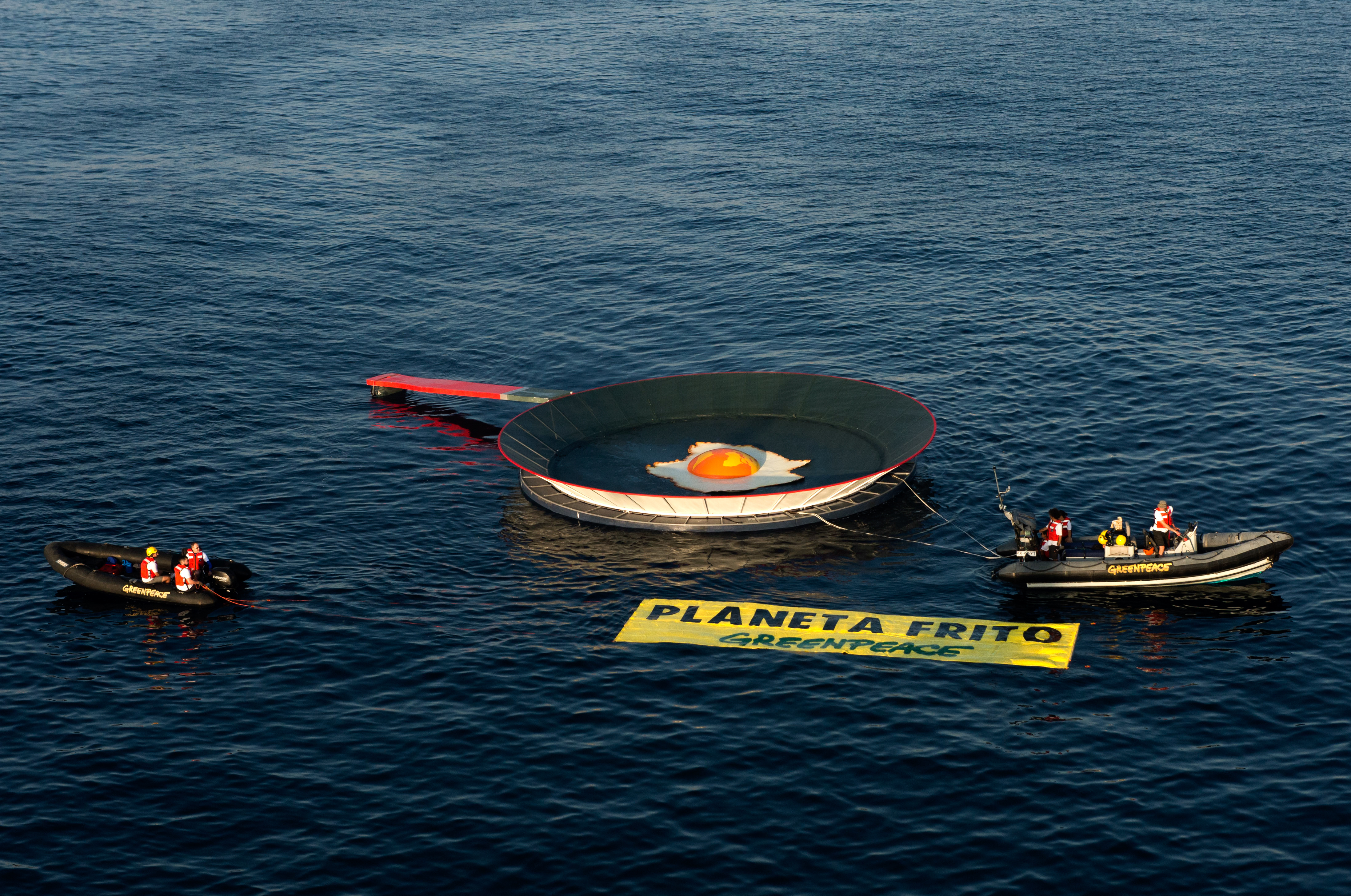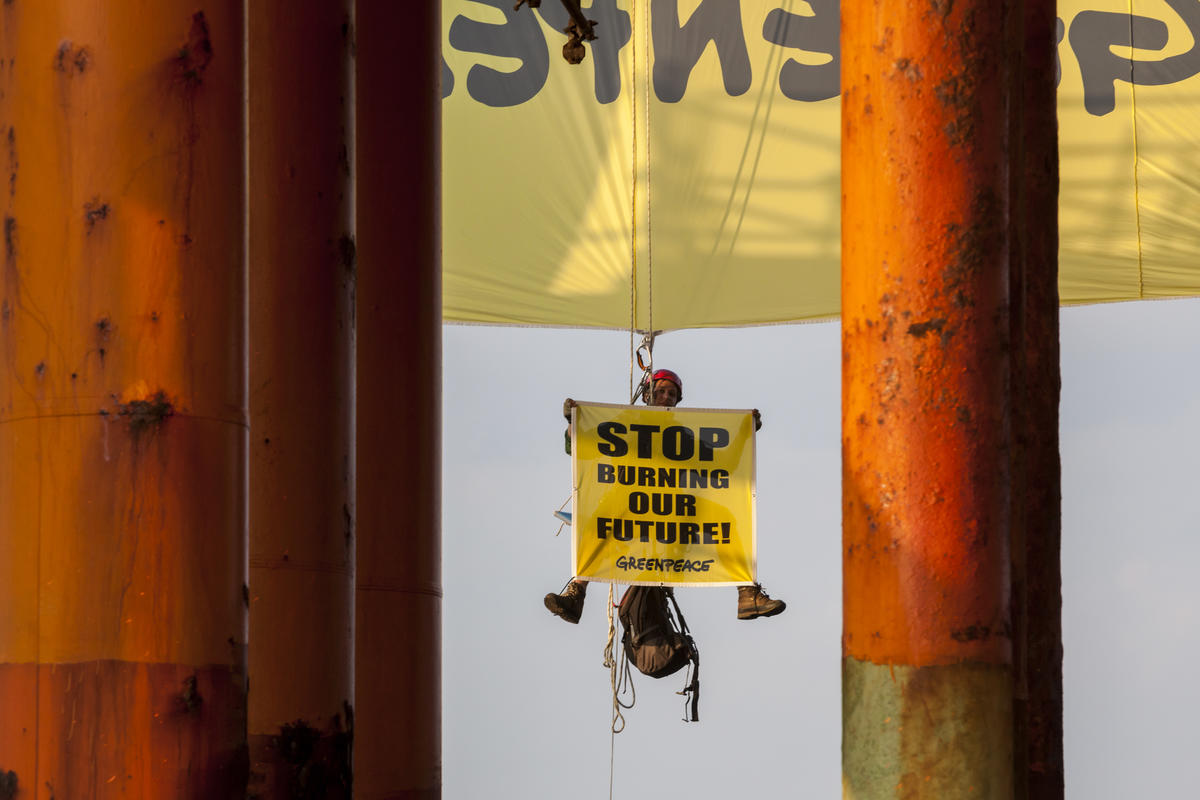June was the hottest month our planet has ever experienced and we’re set to experience our hottest July ever. Europe registered record temperatures, with parts of France hitting a scorching 45.6º C. In India, an extreme and record-breaking heat wave exceeding 50°C killed dozens of people, and it’s set to get worse; experts predict parts of the country could become too hot for human life by the end of the century. That’s if nothing is done.

Greenpeace activists placed a huge pan with a “fried planet” off the coast of La Manga del Mar Menor, Spain. ©Greenpeace/CopterClouds
Across the world, scientists, leaders, people of all ages, are calling for more action on our changing climate; a growing emergency that’s already costing lives globally.
A recent study shows that three quarters of the world’s cities will have different climates by 2050. Madrid will feel like Marrakech, London like Barcelona, and Stockholm like Budapest. Delhi, Beijing, Washington, and Jakarta will experience weather like no other city on the planet. The northern hemisphere will become sub-tropical and the tropics will become dry. The future is dangerously uncertain.
Things are heating up for all of us
Between 2000 and 2016, the number of people around the world exposed to heat waves increased by around 125 million, and eight out of the 10 hottest years on record have been in the last 10 years. During the same period we’ve also seen the warmest ocean on record, with 2018 being the hottest yet. Europe’s summers and winters will see a temperature increase of 3.5° C and 4.7° C. It’s a scary upward trajectory.
Currently around 30% of people are exposed to deadly high temperatures for a period of 20 days or more per year. This number is expected to increase to 48%. In fact, extreme heat events are responsible for more deaths annually than hurricanes, lightning, tornadoes, floods, and earthquakes combined.

Greenpeace activists take action against the oil drilling platform Prezioso, off the coast of Sicily, Italy.
Climate change has no borders
The consequences of extracting and burning fossil fuels – deadly air pollution, climate change, water shortages, and environmental destruction – transcend borders, and affect all of us.
Coal, the world’s worst contributor to climate change, accounts for 46% of global C02 emissions, and supplies a quarter of the total EU electricity production. The EU’s energy sector is responsible for 75% of the EU’s greenhouse gas emissions.
European decision makers are dangerously stalling the transition from fossil fuels to renewable energy, for fear it will disrupt economies and upset voters. However, according to the European Commission, achieving net zero emissions would create more jobs, generate hundreds of billions of Euros in health benefits, and trillions in savings from fossil fuel imports.
Uniting together to save our climate
Across the world, people are joining together to demand action locally and globally. Last year, tens of thousands of people participated in protests across Europe when a coal mine threatened to swallow the ancient Hambach Forest in Germany. Over one million school strikers have followed the example of Swedish climate activist Greta Thunberg, who started “Fridays for Future”; a movement for action on climate, that continues every week.
Between May and October this year, Greenpeace is calling on people to ‘Unite for Climate’ by touring across Europe, over land and sea, to support the growing climate and energy battle. The tour will expose barriers to energy transition, connect community opposition to fossil fuels, and show the impacts of climate change. Greenpeace climate activists have already taken already action in Greece, Italy, Spain, and the action continues.
Join us via #UnitedForClimate, and follow our tour via the United for Climate map:
Isis Wiedmann is a Communications Lead at Greenpeace Germany
